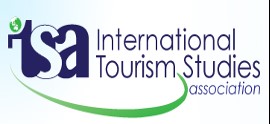Workaholism and the intention to abandon: The case of tourism entrepreneurs
Location
Gran Canaria
Participation
Attend the conference at Gran Canaria in person.
Type of Submission
Paper Presentation
Short Abstract
Entrepreneurship plays a vital role in the development of tourism destinations, both in terms of labour creation and economic contributions. Now, the research field of entrepreneurship has traditionally focused on the key factors for success, with business failure – more precisely, the factors leading to abandonment - receiving little attention. For this reason, the aim of this work is to analyse the role of workaholism (i.e. addiction to work) as an antecedent of entrepreneurial abandonment in the tourism context, particularly in small and medium enterprises (SMEs), which have been confirmed fundamental for the tourism industry. Building on Spence and Robbins' (1992) workaholism model, the results confirm that workaholism is indeed linked to intention to abandon. Consequently, some relevant implications are offered.
Workaholism and the intention to abandon: The case of tourism entrepreneurs
Gran Canaria
Entrepreneurship plays a vital role in the development of tourism destinations, both in terms of labour creation and economic contributions. Now, the research field of entrepreneurship has traditionally focused on the key factors for success, with business failure – more precisely, the factors leading to abandonment - receiving little attention. For this reason, the aim of this work is to analyse the role of workaholism (i.e. addiction to work) as an antecedent of entrepreneurial abandonment in the tourism context, particularly in small and medium enterprises (SMEs), which have been confirmed fundamental for the tourism industry. Building on Spence and Robbins' (1992) workaholism model, the results confirm that workaholism is indeed linked to intention to abandon. Consequently, some relevant implications are offered.
https://docs.lib.purdue.edu/itsa/ITSA2022/ITSA2022/65


